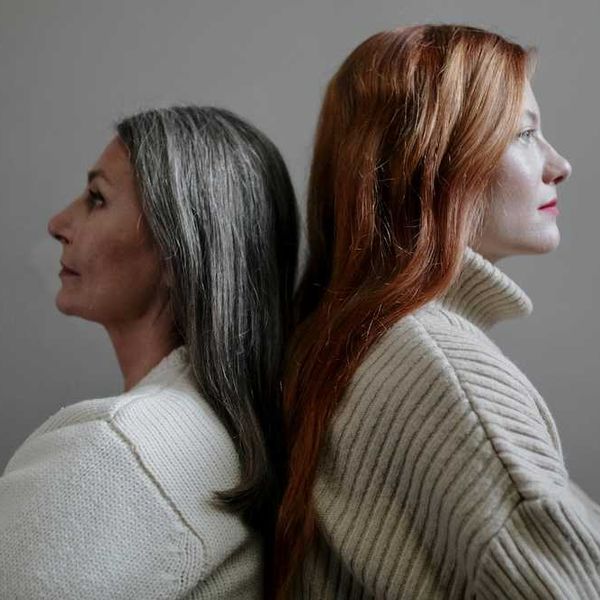You don’t have to be at home to feel at home.
Why It’s So Damn Difficult to Say Goodbye to Your Childhood Home

For those of us who were fortunate enough to live in one, maybe two, houses during our childhoods and adolescences, we may well have subconsciously made these beloved abodes parts of ourselves. Whether it’s baking cookies with Mom in the kitchen, playing spin the bottle in the basement, or doing summertime cartwheels in the backyard that we reflect on so fondly, these memories carry with them a sense of comfort and security. So when our parents decide to uproot themselves after we’ve grown, it might feel like they’re packing up our precious memories along with the rest of their stuff. And this is normal. Even for adults who have been living on their own for years, this upheaval can be hard. Ross Grossman, a Los Angeles-based family therapist, explains why.

As adults, chances are, we’ve “left” our childhood homes on more than one occasion. Perhaps it was for a sleepover, or then maybe summer camp. “(Those were) both anxiety-producing and highly exciting,” Grossman says. “‘Look, Ma, no hands!’ That feeling of independence is invigorating. But we always know that Mom and Dad are waiting back at the home front should we need to refuel.”
Next, we likely left for a more extended period of time: College. “[During college], we are leaving the staid, stable, consistent reality of home and going out to seek knowledge and adventure,” Grossman explains, “but with the ever-present thought that home is always back there, waiting.”
However, when home is no longer “back there” because our parents have separated or moved, we lose the refuge that we were so able to rely on. “Home,” at least as far as we’d come to recognize it, no longer exists. “Once our childhood home is removed in a very real way, our sense of permanence — which is to say a false sense of permanence — is altered,” Grossman states. “It can feel very much like the ground shifting beneath our feet to be unable to enter our childhood home, smell the familiar smells, walk the familiar halls, sleep in a familiar room.”
And we are not only coping with the loss of a childhood constant but also — maybe for the first time — being forced to confront impermanence, according to Grossman. “Saying goodbye forever to a childhood home points out the innate sweet sadness of the transitory nature of life,” he says. “Feeling somewhat sad and wistful is a natural reaction to this loss. Western culture does not integrate the concept of death very well into our daily lives,” Grossman continues. “Yet losing our childhood home is a kind of ‘small death’ and a preview of other deaths to come.”
The most powerful antidote to this type of sadness is gratitude. As Grossman points out, thousands of people are forced from their homes each year due to natural disaster, war, or other circumstances, and we were lucky enough to remain contentedly planted in one safe and comforting home for the most formative years of our lives.
“Home is indeed where the heart is, so take a moment and collect your thoughts about home, that is, the value of what home represents,” Grossman says. “Home can mean many things to many different people: a place to feel safe, a place to relax, a place to gather together, a place to communicate freely.” And once your family moves into their new home, take these values with you there so the new place will feel like home too.
How’d you handle this loss of home? Let us know @BritandCo.
{Photo via Getty)



















